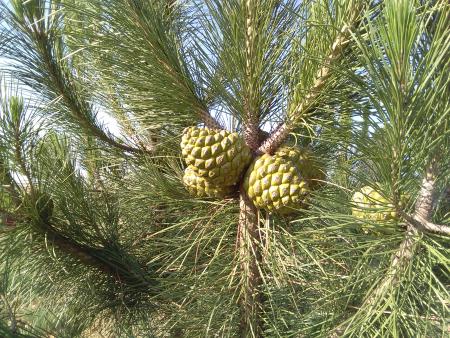
Objective:
The high prices paid for genuine Mediterranean pine nuts kernels as gourmet nuts are due to an sustained demand on the world market, not met by the production harvested from the wild. The use of grafted Mediterranean stone pine trees allows landowners to establish profitable new plantations with precocious cone yields. For this purpose, genotypes have been selected in Spain and Portugal. Here we present 15 clones registered in Spain with estimated gains of around +10-30% in mean cone yield.
Context:
The Mediterranean stone pine, Pinus pinea, is one of the most emblematic Mediterranean trees. Its edible pine nut kernels are esteemed for their fragrant taste and superior nutritive values, and as cultural heritage. Today, they are the most expensive nuts sold in groceries and supermarkets, due in part to the effects of droughts and pests that for years have severly reduced the pine nut supply from the wild. There is an increasing shortfall in the supply of genuine Mediterranean pine nuts to meet the world demand, hence, an interesting business opportunity exists for stone pine growers.
Contacts:
Sven MUTKE, mutke@inia.es, http://www.inia.es
Further information:
Mutke, S., Guadaño, C., Iglesias, S., León, D., Arribas, S., Gordo, J., Gil, L., Montero, G., 2017. Selection and identification of Spanish elite clones for Mediterranean pine nut as orchard crop. Options Méditerranéennes A 122, 71-75. http://om.ciheam.org/article.php?IDPDF=00007244